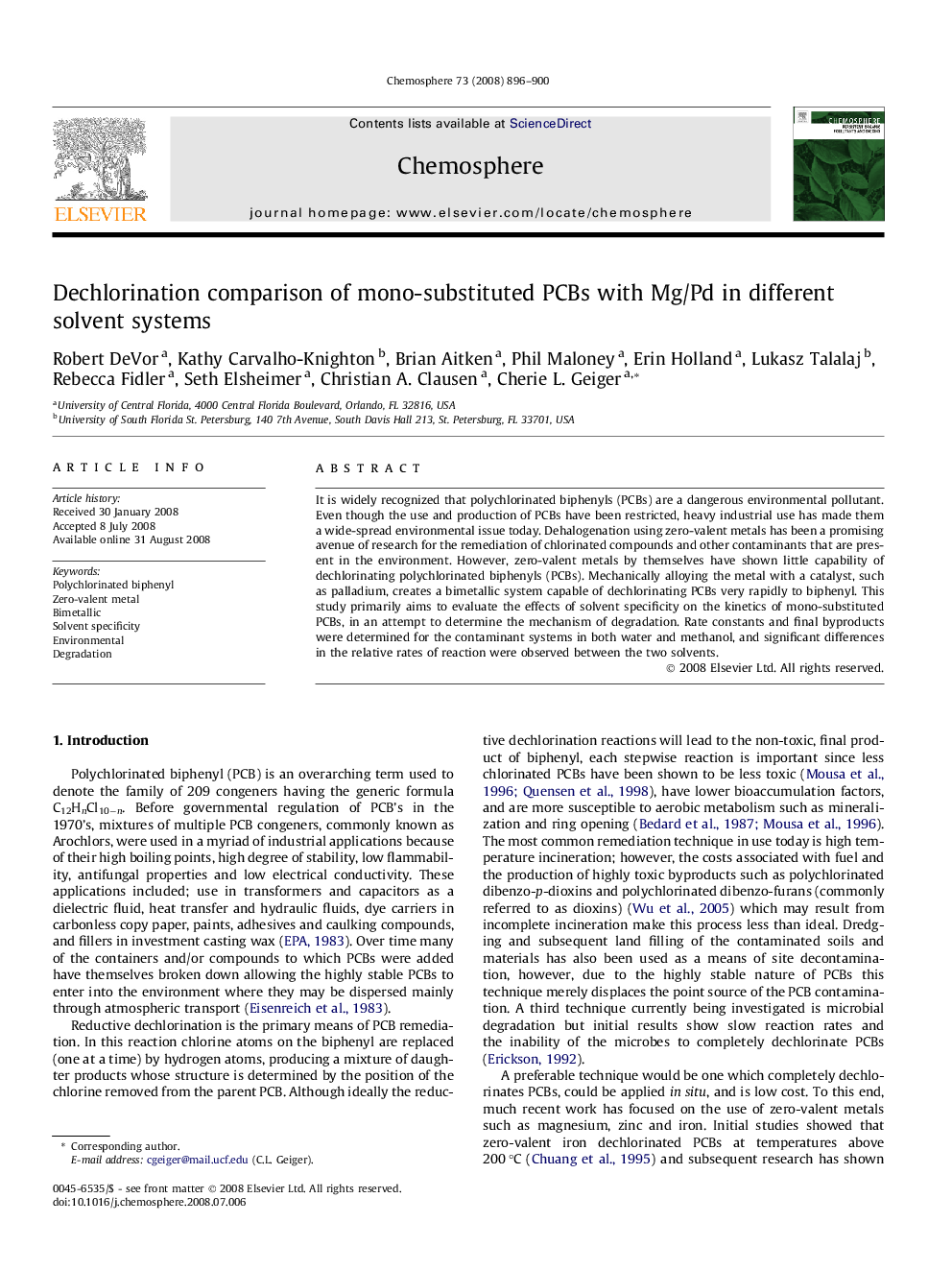| Article ID | Journal | Published Year | Pages | File Type |
|---|---|---|---|---|
| 4413137 | Chemosphere | 2008 | 5 Pages |
It is widely recognized that polychlorinated biphenyls (PCBs) are a dangerous environmental pollutant. Even though the use and production of PCBs have been restricted, heavy industrial use has made them a wide-spread environmental issue today. Dehalogenation using zero-valent metals has been a promising avenue of research for the remediation of chlorinated compounds and other contaminants that are present in the environment. However, zero-valent metals by themselves have shown little capability of dechlorinating polychlorinated biphenyls (PCBs). Mechanically alloying the metal with a catalyst, such as palladium, creates a bimetallic system capable of dechlorinating PCBs very rapidly to biphenyl. This study primarily aims to evaluate the effects of solvent specificity on the kinetics of mono-substituted PCBs, in an attempt to determine the mechanism of degradation. Rate constants and final byproducts were determined for the contaminant systems in both water and methanol, and significant differences in the relative rates of reaction were observed between the two solvents.
